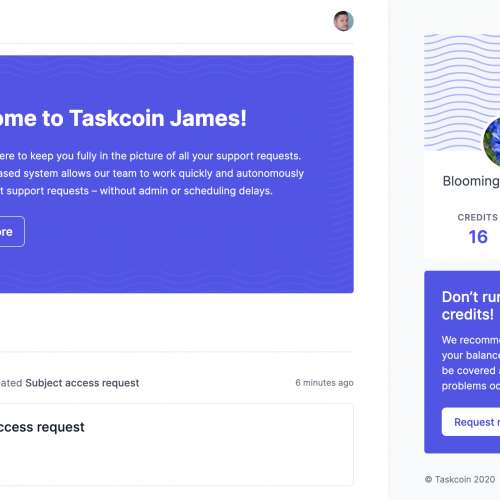Initial Coin Offerings (ICO), ICOs, or sometimes referred to as token sales, are when a company offers investors some units of a new cryptocurrency or crypto-token in exchange against cryptocurrencies such as Bitcoin or Ethereum.
ICOs have become a new way for startups to raise money without selling stock or going to venture capitalists and have been seen by many as a new form of crowdfunding. Despite their surge in popularity, a lack of regulation, fraudulent fundraising schemes, and an outright ban in China has led to a pretty mixed reaction.
We asked a bunch of startup teams who have raised, or are in the middle of raising, funding through an ICO why they chose to raise this way compared to traditional funding methods.
Here’s what they had to say…
Nadine Dambion – hydrominer.org @hydro_miner

“We thought that it was the best choice for our business model, we wanted to reach customers all over the world and build a strong community, which we have now. Also the minimum participation is really low, everyone can join your project if they want to.”
Alvaro Ramirez – eharvesthub.com @eHarvestHub
“Our project is about helping small farmers around the world reach markets directly without middlemen. The reason behind raising through an ICO is to have as many contributors participate with smaller investment amounts. Also cryptocurrency is perfect to get payment to farmers faster and avoid currency volatility and non-payment.”
Claudio Perlini – boule.one @BouleCoin

“No equity given away, still easy to manage legal framework.”
Marc Degen – modum.io @modum

“Fast alternative to VC’s silly battles and corporate venturing never ending timelines and decision timelapse.”
Muhammad Gali – ito.publiq.network @publiq

“The creation of the PUBLIQ ecosystem requires the creation of a utility token that is used by advertisers to buy advertising space and as well, to reward each participants depending on their reputation or participation.”
Shawn Gordon – saavgames.com @SAAVgames

“For what I’m doing it allows me to not deal with institutional investors for something that will be sold to the players anyway. My ICO is oriented around a game and the cryptocurrency is the currency in the game, so my use case is clear and unlike most ICO’s.”
Gerbert Vandenberghe – fundrequest.io @fundrequest

“You do not have go onto sell part of your company and if your token is a utility token you are not subject to financial legislation, although economic regulation still applies. You can also reach a wide audience which in our case is necessary to successfully launch the FundRequest platform. It is a democratic way to funding your development: there are no expensive middlemen involved and thus all funds can go to product development and everyone who believes in your vision can participate in the token sale for a couple of Euros. In traditional fund raising rounds only institutional investors and wealthy people can participate.”
Andrius Putna – bitdegree.org @bitdegree.org

“We’ve chosen to raise money through an ICO as it is the answer to having a decentralised platform with a fully functioning token economy.”
Summary
For most raising through an ICO meant avoiding the usual pitfalls of dealing with VC and institutional investors. Whilst for others having a crypto token was part of their product or idea so was an essential route. Another similar theme was that ICOs allow anyone to participate, not just wealthy investors, showing its similarity to other fundraising models like crowdfunding. What is clear is that ICOs present both benefits and disadvantages, as well as threats and opportunities, to the traditional venture capital business model.
We’d like to say a huge thanks all the founders and startup teams for taking part in our survey and telling us some of the reasons they chose to raise through an ICO.
If you’d like to chat about your startup, blockchain idea or ICO you can contact us at simpleweb.co.uk/contact.




